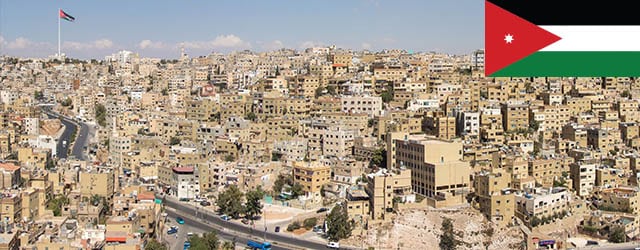Frontier Markets Report | Jordan

Jordan is working hard to build its attractiveness to foreign investors, but regional instability presents a serious downside.
Jordan pulled in net foreign direct investment of $950 million in the first six months of 2014 and continues working to remove obstacles to FDI, most importantly with a new draft investment law.
The mandates of the Draft Jordanian Investment Law include attracting local and foreign investment and strengthening confidence in Jordan as an investment destination. To be implemented this year, the law will smooth the path for FDI, according to Khaled Saqqaf, partner and head of the Jordan and Iraq offices of law firm Al Tamimi. “It will enhance the way, going forward, [that] investors will be served in Jordan,” he says.
The Draft Law simplifies the so-called one-stop-shop procedure that moved all governmental organizations involved in licensing into one department—a procedure that in the past had not worked efficiently. Another provision shifts the emphasis of tax exemptions from geographic location to business sector.
Other problems do not lend themselves to legislative solutions. Jordan’s
geographic situation frightens many investors, since its neighbors include Iraq, which is simultaneously fighting the Islamic State and Syrian rebel forces and is unlikely to become stable for at least a few years. Financial decision-makers don’t always distinguish Jordan’s investment climate from the instability surrounding it.
So far, the consequences of these battles have not been catastrophic for Jordan, though the millions of refugees that have sought haven in the country continue to sap its resources. Before the outbreak of hostilities in Syria, some Jordanian exports were shipped through Beirut, Lebanon, and through Aqaba—Jordan’s only coastal city and fully functional shipping port. The war has meant that nearly all sea shipping now goes through Aqaba. The change has not yet caused problems for the country’s exports, though the local conflicts have stalled plans for trade integration in the Levant, a process that would likely have increased export markets.
Regional conflict notwithstanding, strong areas for investment include Jordan’s medical services sector, tourism and the banking, mining, information technology and pharmaceuticals sectors.
The country, however, is facing some financial challenges that have nothing to do with armed conflict. Jordan had gross domestic debt totaling 22.3 billion Jordanian dinars ($33 billion) in October 2014, up from 20.7 billion dinars in December 2013. However, international partners can take reassurance from the government’s $1.3 billion bond issue in 2013—guaranteed by the US government—and another issue and guarantee for $1 billion in 2014. The funds enable Jordan to pursue economic development and reform goals.
The steep drop in oil prices should have a positive impact for Jordan. The nation imports its oil and stands to save a lot of money.
Jordan has a range of advantages, including a stable currency, a well-capitalized financial system (boosted by remittances from abroad of around $3.2 billion in 2014), available credit facilities, improving port facilities at Aqaba and the positive view of king Abdullah II held by Western governments. “Regardless of what’s going on in the Middle East, Jordan has proved to be a stable country,” Saqqaf says.
Vital Statistics |
|---|
|
Location: Middle East |
|
Neighbors: Syria, Iraq, West Bank, Israel, Egypt |
|
Capital city: Amman |
|
Population: (2013) 6,459.000 |
|
Official language: Arabic |
|
GDP per capita (2013 in Current US$): $5,214.20 and trending up |
|
GDP growth (2013): 2.8% and trending up |
|
Inflation (2013): 5.5% |
|
Currency: Jordanian Dinar |
|
Investment promotion agency: Jordan Investment Board |
|
Investment incentives available? |
|
Ease of Doing Business rank: (June 2014) 117 out of 189 |
|
Corruption Perceptions Index rank: (2014) 55 out of 175 countries |
|
Political risk: |
|
Security risk: |
PROS |
|---|
|
Politically stable |
|
Strong international support from the US and GCC countries |
|
Commitment to attract FDI |
|
Heightened anticorruption measures passed recently |
CONS |
|---|
|
High unemployment, estimated at 14% in 2013 |
|
No oil |
|
Limited extent of natural resources that can be exploited |
|
Little real budgetary flexibility |
|
Heavy dependence on foreign aid |
|
Shortage of water |
|
High dependence on imports of food, energy |
Sources: “Overcoming Barriers to Foreign Direct Investment in Jordan,” Yusuf Mansur, Jordan Ministry of Finance General Government Finance Bulletin, November 2014. International Journal of Research and Reviews in Applied Sciences, August 2011. International Crisis Group. Jordan Times. Organization for Economic Co-operation and Development. Rabobank Economic Research. Transparency International. US State Department. World Bank.
For more information on Jordan, check out our Country Economic Reports.



